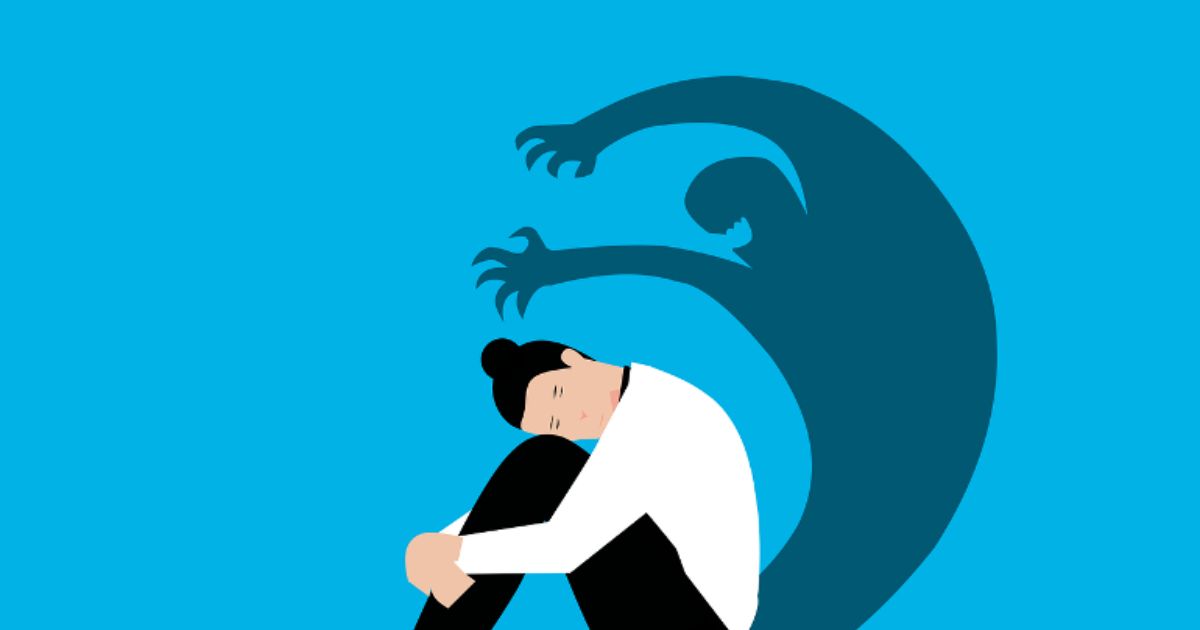Many of us have experienced anxiety as more than just a mental sensation. We’ve described it as having our “heart in our throat” or “butterflies in our stomach.” This physiology of fear and anxiety has led to cultural associations of cowardice and bravery with the heart and gut rather than the brain.
However scientific research has traditionally centered on the brain as the origin and processing center for these emotions. So, why and how do we feel anxiety and fear in other parts of our body?
The Science Behind Physiology Of Fear
Dr. Javanbakht, a psychiatrist and neuroscientist, dedicated to researching and treating fear and anxiety, explores this intriguing phenomenon in their book “Afraid.”
They delve into how fear functions in both the brain and the body and shed light on the detrimental effects of excessive anxiety on our physical health.
While emotions indeed have their roots in the brain, it is the body that executes the commands. In our modern lives, anxieties are often more abstract than the immediate threats faced by our ancestors.
Around 50,000 years ago, being rejected by one’s tribe could spell death. However, today, not acing a school or work presentation doesn’t carry such dire consequences. Yet, our brains may not distinguish between these scenarios.
Several key regions in the brain play a significant role in processing fear.
When we perceive something as a threat, whether it’s a menacing person or a hostile crowd, sensory inputs first reach the amygdala, a small, almond-shaped region located near the ears.
The amygdala’s role is to detect the emotional significance of a situation and determine our response: fight, flight, freeze, or even mate.
It is designed for rapid threat detection, bypassing logical thinking areas in the brain to initiate immediate physical responses. For instance, the amygdala can react to an angry face on a screen without the viewer consciously registering this reaction.
Tightly connected to the amygdala is the hippocampus, responsible for memorizing what is safe and what is dangerous, especially in the context to the environment. It helps the brain discern whether the sight of an angry lion at the zoo poses a genuine threat or not.
The prefrontal cortex, situated above our eyes, primarily handles the cognitive and social aspects of fear processing. For example, you might initially fear a snake until you learn it’s not venomous, or a colleague dispels rumors of layoffs, alleviating your job-related anxiety.
Additionally, the prefrontal cortex plays a role in teaching fear based on social cues, leading to biases such as racism, rooted in tribalism.
However, when the brain decides that a fear response is warranted, it sets off a cascade of neuronal and hormonal signals to prepare the body for immediate action.
While some aspects of the fight-or-flight response, like heightened attention and threat detection, occur in the brain, most of the action unfolds in the body.
To ensure ample blood supply to muscles during heightened demand, signals from the sympathetic nervous system increase heart rate and the force of contraction.
These changes are felt in the chest, contributing to the sensation of intense emotions being linked to the heart.
Similarly, the sympathetic nervous system dilates airways in the lungs, often resulting in increased breathing rate and depth, sometimes causing a feeling of breathlessness.
During a fight-or-flight response, digestion becomes a low priority. As a result, sympathetic activation slows down the gut and reduces blood flow to the stomach, conserving oxygen and nutrients for vital organs like the heart and brain.
These changes in the gastrointestinal system can manifest as the discomfort associated with fear and anxiety.
All these bodily sensations, including those from the chest and stomach, are relayed back to the brain through pathways via the spinal cord. The already anxious and alert brain processes these signals at both conscious and unconscious levels.
In conclusion, anxiety and fear are not confined to the brain; they involve a complex interplay between the brain and the body.
While the brain may initiate these emotions, it’s the body that carries out the physical responses, often resulting in sensations like a racing heart or a queasy stomach.
Understanding this intricate connection between the brain and the body can help us better manage and cope with anxiety and fear in our daily lives.

